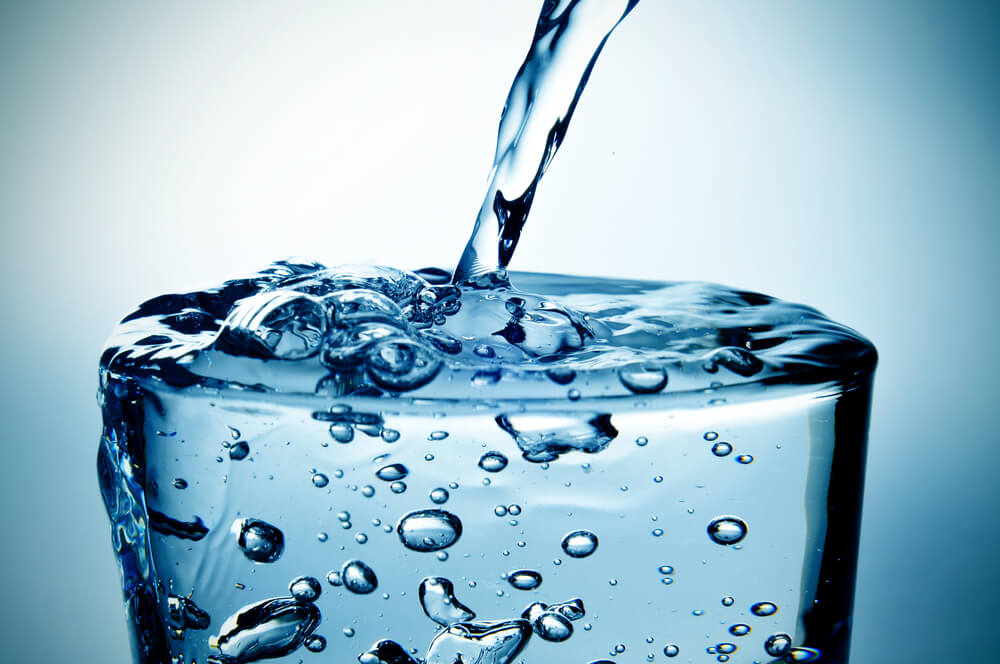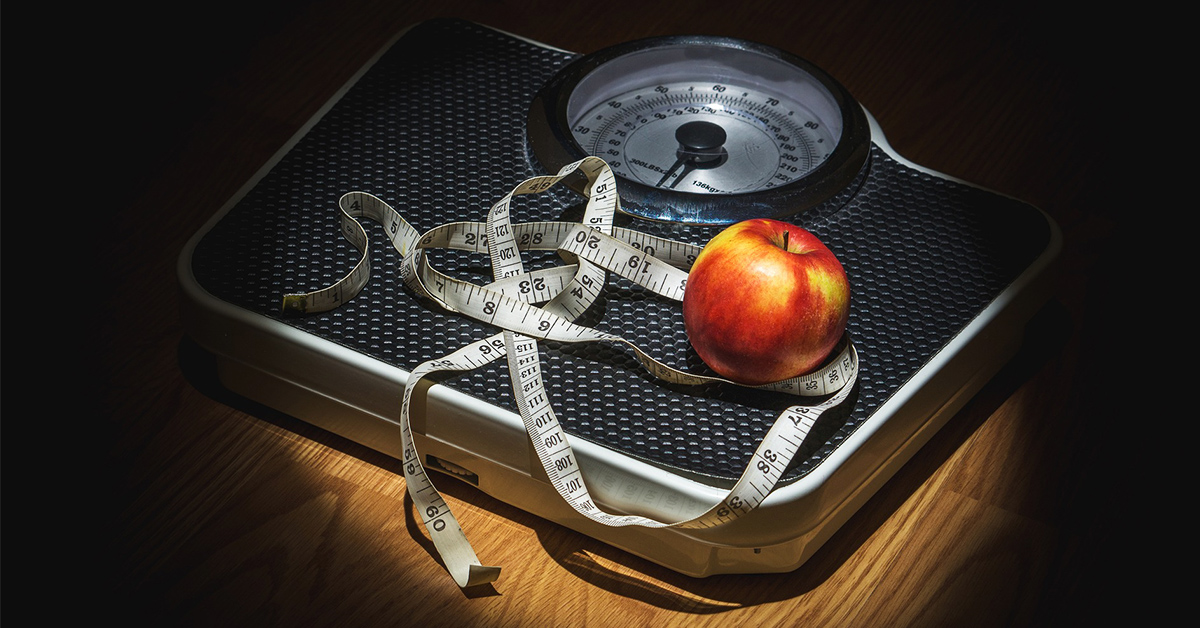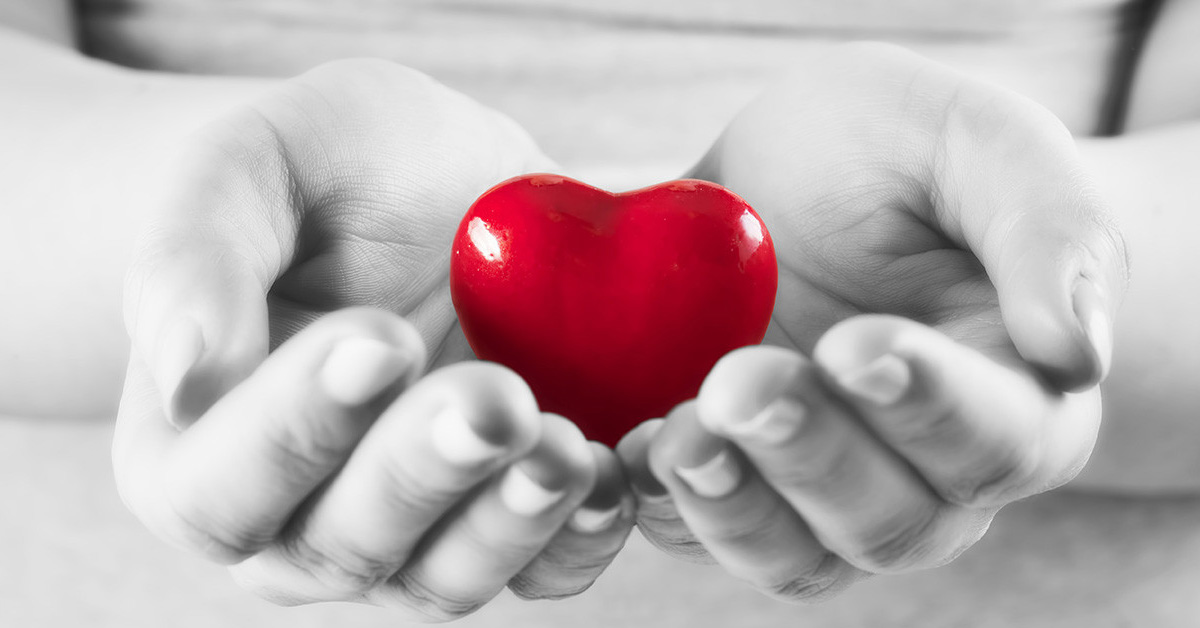My Baby Steps to Perfect Hydration
Category: Healthy Nutrition

Water is not just good for us. It is absolutely crucial to life. In fact, we know oxygen is the only thing MORE important.
Water
Regulates body temperature
Water is responsible for the transport of nutrients and oxygen
Eliminates cellular and body wastes
It’s a factor in digestion and the conversion of food into energy
It’s a lubricant along mucous membranes and between moving parts
It cushions our joints and vital organs
Water is the catalyst for all the 100’s of metabolic reactions and processes in our body
We are not like camels! We can’t store the water we need for metabolism. That’s why we have to drink water frequently. We can live 70 days without food – but only 10 without water. While acute dehydration in the normal, healthy person in unusual, researchers show that long-term, low level dehydration may pose a significant health concern and continue to investigate links between dehydration and a wide variety of chronic health issues.
Under normal conditions and for normal healthy people the body’s thirst mechanism does a good job of signaling the body to drink enough water to maintain water balance. But under some physiological and psychological stress conditions, thirst ceases to be a reliable prompt. (My story about being under such tremendous stress that there were days I had only sips – no thirst mechanism at all.) So, we can’t depend on feeling thirsty to drink water. We have to become aware of our water intake and make drinking it a habit throughout our day. More on that in a little bit.
Let’s first get into the dangers of dehydration as we age. Over all, our bodies “dry out” as the years go by.
At birth we are 75% water and 75 years later we are down to as low as 43%. No wonder we start to feel like a prune!! And on top of that – at the same time, according to the science of our aging bodies, other age-related physical changes often add to our dehydration. We’ve already talked about all the important functions that water plays in our bodies. And everywhere we turn, we see that aging affects those same functions. Dehydration, in many cases just adds insult to injury.
Additionally, many medications, including blood pressure medication, diuretics, anti-depressants and laxatives can cause dehydration. Diabetes is also a contributing factor to dehydration.
So what are those 7 top dangers?
#1. A dramatically reduced properly working thirst mechanism.
Again – the evidence indicates that our ability to detect thirst decreases with normal aging. In one study, healthy young men and healthy elderly men were deprived of water and then given free access to water. Unlike the young men, the elderly men noted no significant difference in their thirst before and after the deprivation and did not drink enough water to get back to their pre-deprivation levels. Interestingly enough, the more you drink, the more your thirst alert activates. So drink more to drink more!
#2. Changes in the ability of the kidneys to excrete or retain fluids, affecting our electrolyte balance.
As we age our bodies lose kidney function and are less able to conserve fluid. This starts around the age of 50, but becomes more acute and noticeable over the age of 70. Kidney stones can become more of an issue with dehydration. A study of patients in a metabolic stone clinic has shown that chronic dehydration is a common cause of urinary stone disease.
Electrolytes are minerals that have an electric charge and have everything to do with all the electrical impulses in our bodies. Sodium, calcium, potassium, chlorine, phosphate and magnesium are all electrolytes. They are in the blood, urine and body fluids. Maintaining the right balance of electrolytes helps your body’s blood chemistry, muscle action and other processes. Electrolyte imbalance can cause all kinds of symptoms – fatigue, muscle weakness or twitching, mood changes, confusion, heart palpitations and arrhythmias, blood pressure issues and more.
#3. Increased incidence of bladder issues and vaginal dryness.
UTIs often become more of a problem as we age. Dehydration can make you more susceptible to getting a bladder infection, and even more so if you are prone to getting them. According to the European Journal of Clinical Nutrition, and I quote “Bacterial eradication from the urinary tract is partially dependent on urine flow and voiding frequency. Adequate hydration is important and may improve the results of antimicrobial therapy in UTIs. In the therapy and prevention of urinary tract infections, forcing fluids has always been advocated. A water dieresis serves to ‘flush’ the urinary tract of infecting organisms, and frequent voiding reduces bacterial multiplication in the bladder.” There are a number of studies that show that drinking adequate fluids supports bladder health by flushing out all kinds of potentially harmful compounds. Finally, people who start drinking less because of bladder control problems are at even higher risk for dehydration leading to bladder issues.
Columbia professor and gynecologist, Dr. Hilda Hutcherson, points out that a big reason for vaginal dryness that’s less talked about is dehydration. While there are many factors that can contribute to this, good hydration is paramount. While water may seem like the first best idea, acupuncturist and nutritionist, Lyndsay von Miller, says the best way to keep your entire body lubed, especially your vagina, is by making sure you have good electrolyte balance. So that brings us full circle, doesn’t it? Drink water for electrolyte balance and water and electrolyte balance for vaginal dryness!
#4. Increased digestive issues
And oh my goodness as we age, we certainly know that those issues become more prevalent.
Water is important for your digestion. It keeps the food you eat moving along through your intestines and it keeps your intestines smooth and flexible.
Dehydration is one of the most common causes of chronic constipation. The food you eat makes its way from your stomach to the large intestine or colon. If you don’t have enough water in your body already — if you’re dehydrated — the large intestine soaks up water from your food waste. This makes stools that are difficult to pass. Adding fiber for constipation is important BUT fiber requires more water to process.
#5. Muscle and joint aches and pains
Connective tissue dehydration causes pain because connective tissue is the supportive scaffolding of the body; when dehydrated, it can’t support, protect or stabilize the body properly, resulting in aches and pains. When the connective fibers are dry and unable to “slide” past each other when dehydrated, pain results but is easily eliminated by getting more water.
Water lubricates joints and muscles, helps maintain elasticity and easy movement for connective tissue. Synovial fluid contains water; if you become dehydrated, you have less synovial fluid available to protect the joints. 8-10 GLASSES OF WATER A DAY COULD SIGNIFICANTLY EASE BACK AND JOINT PAIN FOR UP TO 80% OF SUFFERERS!
Muscle cramps are also increased as a result of dehydration and electrolyte depletion. “When the nerves that connect to the muscles aren’t surrounded by as much water and sodium as they need,” they become hypersensitive, causing the muscles to involuntarily contract or spasm”, Michael Bergeron, executive director of the National Institute for Athletic Health & Performance at Sanford USD Medical Center in Sioux Falls, S.D. says.
#6. Difficulty in losing weight
Water helps the body metabolize stored fat. Studies have shown that a decrease in water intake will cause fat deposits to increase, while an increase in water intake can actually reduce fat deposits.
Here’s why: The kidneys can’t function properly without enough water. When they don’t work to capacity, some of their load is dumped onto the liver. One of the liver’s primary functions is to metabolize stored fat into usable energy for the body. But, if the liver has to do some of the kidney’s work, it can’t operate at full throttle. As a result, the liver metabolizes less fat so that more fat remains stored in the body and weight loss stops.
Bottom line – adequate water intake takes the load off the liver and allows it to throttle up its fat metabolism.
#7. Susceptibility to toxic chemicals
In laboratory studies, dehydration interfered with three physiological functions that protect the body from toxic chemicals, including clearing of the respiratory tract, availability of components of the body’s immune system, and metabolism of chemicals by the liver enzymes. The researchers concluded that dehydration may alter the susceptibility of man to toxic foreign chemicals.
When the body is dehydrated, the detoxification problem linked to inflammation is exacerbated. Free radicals such as radiation, pollutants, chemicals, pesticides, and toxic metals pass freely through the brain’s blood supply.
Alright! That’s a lot of the bad news so now let’s talk about THE 7 POSITIVE EFFECTS OF WATER AS WE AGE
#1. More energy and less fatigue
Although water does not provide energy in the same way carbohydrates and fat do, it plays an important role in energy transformation. A shortage of water inhibits our body’s ability to get nutrients and oxygen to the cells, thereby causing fatigue.
Water is the medium in which all energy reactions take place. If you become dehydrated, you will become lethargic. LACK OF WATER IS THE #1 TRIGGER OF DAYTIME FATIGUE! So drink up!!
#2. Clearer thinking and concentration
Drinking water and brain function are integrally linked. Lack of water to the brain can cause numerous symptoms including problems with focus, memory, brain fatigue and brain fog, as well as headaches, sleep issues, anger, depression, and many more. Changes in electrolyte levels alter brain levels of serotonin, which influences mood for the better -and this appears to be particularly helpful for seniors.
Water gives the brain the electrical energy for all brain functions, including thought and memory processes. When your brain is functioning on a full reserve of water, you will be able to think faster, be more focused, and experience greater clarity and creativity. Studies have shown that if you are only 1 percent dehydrated, you will likely have a 5 percent decrease in cognitive function.
If your brain drops 2 percent in body water, you may suffer from fuzzy short-term memory, experience problems with focusing, and have trouble with math computations.
Water is also essential for delivering nutrients to the brain and for removing toxins. When the brain is fully hydrated, the exchange of nutrients and toxins will be more efficient—thus ensuring better concentration and mental alertness.
#3. Increased immunity
Hydration leads to a decrease in cortisol levels and elevated cortisol suppresses the immune system. Proper hydration has been found to increase salivary rate and salivary immunoglobulin A, which is one of the first lines of defense of the immune function on foreign bacteria. Maintaining appropriate hydration during exercise keeps the immune system functioning properly and can help prevent the risk of upper respiratory tract infections.
A note about headaches – according to Juline Bryson M.D., a neurologist with the Headache Institute at St. Lukes-Roosevelt Hospital Center in Manhattan, “Any change that alters the body’s natural balance, such as dehydration, creates stress and that can trigger a headache. In fact, a headache is your body’s alarm system. It’s telling you your physiological equilibrium is off.” Also, when you’re liquid-deprived, say headache experts, the blood becomes more concentrated, which causes inflammatory proteins circulating in the blood to irritate nerves surrounding the brain.
#4. Less water retention
Drinking enough water is the best treatment for fluid retention. When the body gets less water, it perceives this as a threat to survival and begins to hold on to every drop. Water is stored in extracellular spaces – outside the cells. This shows up as swollen feet, legs and hands.
The best way to overcome the problem of water retention is to give your body what it needs – plenty of water. Only then will stored water be released.
*An important note here – if you have a constant problem with water retention, excess salt may be to blame. The more salt you eat, the more water your system retains to dilute it. Getting rid of unneeded salt is easy – drink more water! Diuretics offer a temporary solution at best. Yes, they force out stored water but they also force out essential minerals. Alfalfa is an excellent natural diuretic with a side benefit of adding those essential minerals back into your body.
#5. Water renews your skin.
Without proper hydration, skin is dehydrated and will present itself by turning your skin dry, tight and flaky. Dry skin has less resilience, is flaccid and more prone to wrinkling. If the outermost layer of the epidermis doesn’t contain enough water, skin will lose elasticity and feel rough. Adequate water helps deliver nutrients we eat to the cells! To encourage healthy cell turnover and reveal new skin, drink enough water!
Water helps prevent the sagging skin that can often follow weight loss – shrinking cells are buoyed by water, which plumps the skin and leaves it looking clear, healthy and resilient.
#6. Better muscle tone
Water helps maintain proper muscle tone by giving muscles their natural ability to contract. Preventing dehydration will also help prevent sagging skin, since water will fill out the muscles, resulting in the skin appearing tighter and smoother. Increasing water intake will help prevent muscle cramping, improve the strength of muscle contractions and quicken muscle response.
#7. Less food cravings, especially for sweets.
While you can crave anything from chocolate to a salty snack, cravings for sweets are more common because your body may be experiencing difficulty with glycogen production when you are dehydrated. When you’re hydrated, the liver releases glycogen and other components of your energy stores, so that food cravings are minimized.
If you crave sweets, choose a snack that has high water content. Most fruits and vegetables have high water content and will help you stay hydrated. Go for cantaloupe, strawberries, watermelon, cucumber, celery, lettuce and leafy greens, zucchini, tomatoes, and bell peppers – they are more than 90% water.

How do you know if you’re dehydrated?
Check your urine. John Higgins, MD, associate professor of cardiovascular medicine at the University of Texas in Houston, and chief of cardiology at Lyndon B. Johnson General Hospital, explains. If you’re well-hydrated your urine will be mostly clear with a tinge of yellow. Yellow, chardonnay, and orange are the “warning” colors to watch for. When your body is about 3% dehydrated, your urine will be noticeably yellow. When your body is about 5% dehydrated, your urine will appear chardonnay-colored. When your body is severely dehydrated – more than 5% – your urine will appear orange.
The Pinch test – First, use two fingers to grab a roll of skin on the back of your hand (between where your watch sits and where your fingers start), advises Higgins. Pull the skin up about ½ to 1 centimeter high and then let the skin go. The skin should spring back to its normal position in less than a couple of seconds. Higgins says that if the skin bounces back slowly, you might be dehydrated.
HERE ARE MY TIPS FOR BABY STEPPING TO PERFECT HYDRATION
- Cold water is more easily absorbed than warm water.
- Try infused water for a hint of flavor. BPA-free pitchers for this are easily available.
Add chunks of pineapple, peaches, melon, any citrus fruit slices, or crushed berries. - Add lemon or orange slices, a few berries, cucumber and/or fresh mint leaves.
- Pre-measure your water each day so that your water goal is clearly visible.
- Set a baby step goal for ounces completed.
Example: If your goal is 75 oz. per day, that’s 9-10 cups per day.
Morning – drink 3 cups by 12:00
Afternoon – drink 3 cups by 4:00
Evening – drink 3 cups by bedtime - Always keep in mind Shaklee Pure Performance Hydrate products which come in Lemon Lime and Orange. Two distinct options are available but both are clinically proven to hydrate and replenish our much-needed electrolytes.
- Shaklee Get Clean Water Pitcher is a great option for clean water! Each Get Clean® Water filter handles 80 gallons of water, twice as much as Brita® and Pur®. Get Clean Filters fit the Brita pitcher. It is certified by the Water Quality Association (WQA) to reduce up to 99% of lead and dozens more nasty contaminants harmful to health.


Facebook Comments